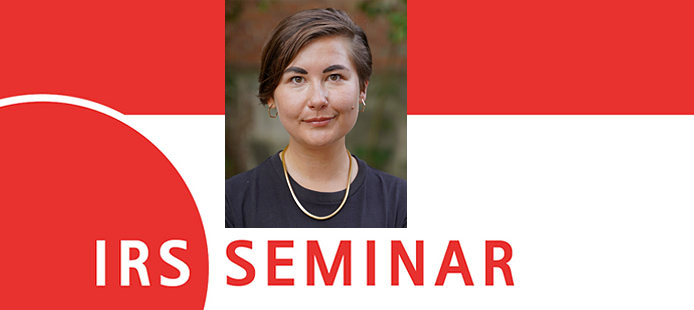Hauptinhalt
To stay, to leave, to come back. Insights about spatialized decision-making of Ukrainian refugees in Germany
IRS Seminar with Valeria Lazarenko | Researcher in the Research Area “Politics and Planning”

Since the beginning of Russia’s full-scale war against Ukraine, more than 13 million people have left their homes. 6 millions of them left the country, with around 900 000 took their residency in Germany. However, according to the IOM data, the vast majority of refugees have an intention to come back home in a soon perspective instead of settling down in their current places of residency.
How do people decide whether to stay in their hometown or leave it for a safer place abroad? Why do they decide to come back – or not come back, meaning settling down in a new environment, and what might change their decisions? I am going to present the analysis of such decision-making and reasoning for the displacement among those Ukrainians who moved to Berlin since the beginning of the full-scale war. Following Bourdieu’s ideas on temporality and recent scholarship on refugee studies (El-Shaarawi, 2015; Hainmueller et al., 2016; Brun, 2016; Fontanari, 2017, Hayes, 2018, Fiddian-Qasmiyeh, 2020, Rajaram, 2022), I would make a focus on the concept of ‘permanent temporality’ experienced by Ukrainian refugees. Based on the findings on the data of in-depth interviews with Ukrainians in Berlin, as well as surveys made in March and May 2022, I am going to look through the emotional and social dimensions of spatialized decision-making and the experiences of ‘non-belonging’.
Bio
Valeria Lazarenko joined IRS in April 2022. She is a researcher in the Research Area “Politics and Planning” working with topics of migration and appropriation of urban spaces by newly migrants. Her main research focus is decision-making of Ukrainian migrants towards their perspective on settling down in German cities. For her research she was granted a Philipp Schwartz scholarship for scholars at risk from the Alexander von Humboldt Foundation.
She studied social psychology at the Kyiv National Taras Shevchenko Univeristy, and completed her PhD thesis (2020) at the Research Institute for Social and Political Psychology in Kyiv, Ukraine. In her research she examined the construction of spatial identities and appropriation of spaces by internally displaced people in Ukraine. In 2017-2019 she was a researcher of the Eurasian Peace Studies Exchange project and a vsiting researcher at the Center for Peace Studies at the UiT – The Arctic University of Norway (2018). Former guest researcher at the chair for Cultural Geography at the University of Bayreuth (2018-2019). In 2021-2022 she was associated with Kyiv-based independent think tank Cedos, where she was a policy analyst, an expert in housing and migration, and the research lead in the project on the impact of full-scale war on the civil population in Ukraine.

